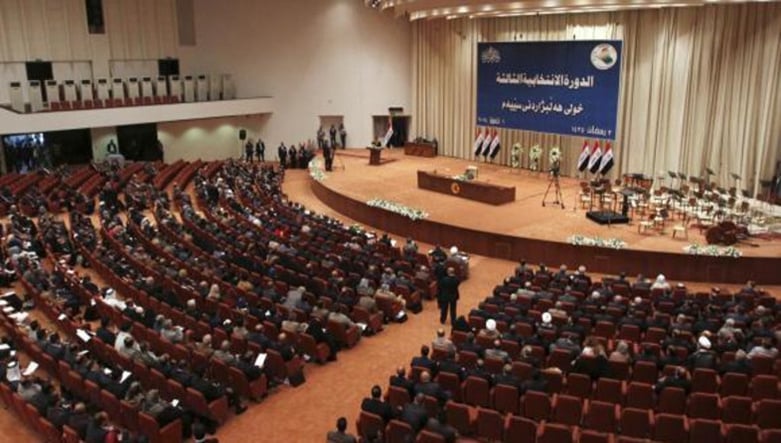
Persistent paralysis and other issues -- most recently corruption allegations against the speaker and some lawmakers -- also bolster long-held feelings among many Iraqis that the legislature is both ineffective and self-serving.
Iraq finally bans fake bomb detectors after July 3 blast
"All of our problems are because of them," Ali Majeed al-Saadi, 26, told AFP on a main commercial street in Baghdad. Saifeddin Khazali, 33, was also sharply critical when asked what he thought of the legislature, saying: "They don't represent the people."
"I have absolutely no confidence (in parliament)... I don't have any confidence in any MP," Khazali said. The most recent trouble in parliament began when Defence Minister Khalid al-Obeidi accused speaker Salim al-Juburi and several lawmakers of corruption and blackmail.
The minister's accusations led to a judicial investigation and resulted in Juburi and two MPs being barred from travelling, while the speaker filed suit against Obeidi, alleging defamation. Earlier this year, parliament was deadlocked over Prime Minister Haider al-Abadi's efforts to replace current ministers with technocrats -- a move opposed by powerful parties that rely on control of ministries for patronage and funds.
Sessions were repeatedly overshadowed by antics in parliament, including a sit-in by MPs, verbal and physical altercations, and a vote to sack the speaker that resulted in two rival claimants to the post.
Protesters angered by lawmakers' inaction eventually broke into Baghdad's fortified Green Zone area, stormed parliament and temporarily occupied the building.
Zaid al-Ali, a constitutional expert and the author of "The Struggle For Iraq's Future", said the latest problems would not necessarily further reduce confidence in parliament, as it cannot get much lower.
"Ordinary Iraqis already consider the institution to be a joke," Ali said.
The deadlock and chaos in parliament in recent months comes as Iraq faces some of the most dangerous and pressing problems in its recent history -- issues an effective legislature could play a role in addressing.
Three-year loan: IMF sets $5.34 billion programme for Iraq
The country is fighting to push back the Islamic State group, which overran large areas in 2014, and the United Nations has warned that political turmoil in Iraq ultimately benefits the jihadists.
Iraq also faces a major financial crisis caused by slumping oil prices combined with years of mismanagement and graft, and there is widespread anger over rampant corruption and abysmal services.
While there have been frequent problems in parliament of late, ineffectiveness in the legislature is far from new, and what is meant to be one of Iraq's key government institutions is not performing its role.
"Iraq's parliament is and has been one of the most ineffective institutions in the Iraqi state since 2005," said Ali.
"That is very problematic because our constitution establishes Iraq as a parliamentary democracy, and places the Iraqi parliament at the centre of all state activities," he said.
Lawmakers working for their own enrichment or for parties, sects or ethnicities instead of broader national goals are the cause of some of the problems in parliament, and of the widespread anger against it.
There is also no official opposition, and all major parties have ministers in the cabinet -- a situation that emphasises consensus and gives all sides a voice, but also makes it extremely difficult to pass and implement controversial measures.
"On vital issues like security, the parliament has been incapable of passing virtually any legislation," Ali said, and "major reform is impossible in Iraq, because the parliament is an incompetent institution."
Blair in spotlight as UK Iraq inquiry gives verdict
New MPs could improve the situation, but the next election is not until 2018, and even then, change is not guaranteed.
In the interim, Iraqis will have to live with a parliament they neither believe in nor trust.
Iraq's parliament is an "unnecessary institution", journalist Ali Hassoun told AFP in Baghdad. "If it was cancelled, it would be better," he said.




1725967717-0/Untitled-design-(3)1725967717-0-165x106.webp)


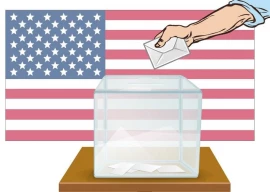
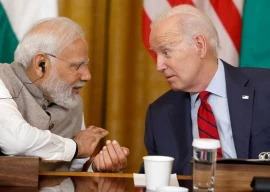
1730561201-0/Express-Tribune-Web-(18)1730561201-0-270x192.webp)
1725355010-0/BeFunky_-(15)1725355010-0-270x192.webp)

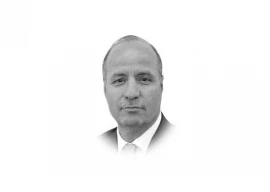


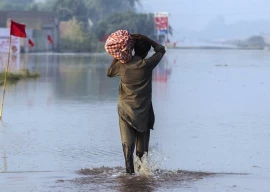

COMMENTS
Comments are moderated and generally will be posted if they are on-topic and not abusive.
For more information, please see our Comments FAQ